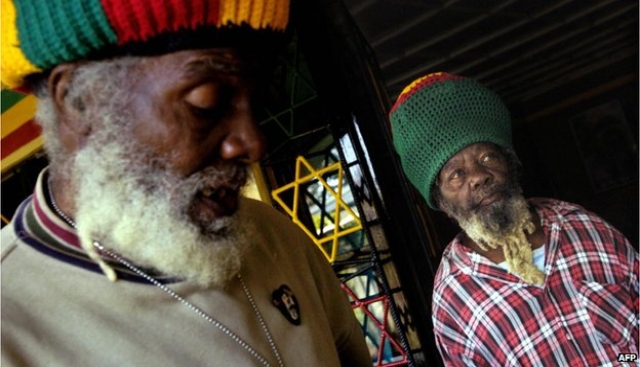 (BBC News Magazine)
(BBC News Magazine)
By Chris Summers
Forty years ago Emperor Haile Selassie of Ethiopia was overthrown. It was a blow for all Rastafarians, who revere him as a god – and for those Rastafarians who had emigrated to Ethiopia, life suddenly got more difficult.
In 1948 Emperor Haile Selassie gave 500 acres (200 hectares) of land at Shashamene, 150 miles (225km) south of Addis Ababa, to black people from the West who had supported him in his struggles with Mussolini’s Italy.
The first settlers to arrive were African-American Jews, but they soon moved on to Liberia or Israel. After them, in 1963, came a dozen Rastafarians, and the numbers swelled after Selassie made an emotional visit to Jamaica three years later.
The Rastafarians’ adoration of Selassie stems from the words of black consciousness leader Marcus Garvey, who said in 1920, “Look to Africa, when a black king shall be crowned, for the day of deliverance is at hand”. When Selassie was crowned emperor, 10 years later, many thought Garvey’s words had come true.
Another belief widely held by Rastafarians is that they will eventually return to Africa – the continent their ancestors left in slave ships long ago. And quite often, according to Erin MacLeod – author of Visions of Zion: Ethiopians and Rastafari in the Search for the Promised Land – “back to Africa” is treated as synonymous with “back to Ethiopia”.
Today there are up to 800 Rastafarians at Melka Oda, near Shashamene, as well as a few in the capital, Addis Ababa, and in the city of Bahir Dar. But how has life turned out for them in Ethiopia – and what do Ethiopians make of their Rastafarian neighbours?
Read more at BBC News »
—
Join the conversation on Twitter and Facebook.

























